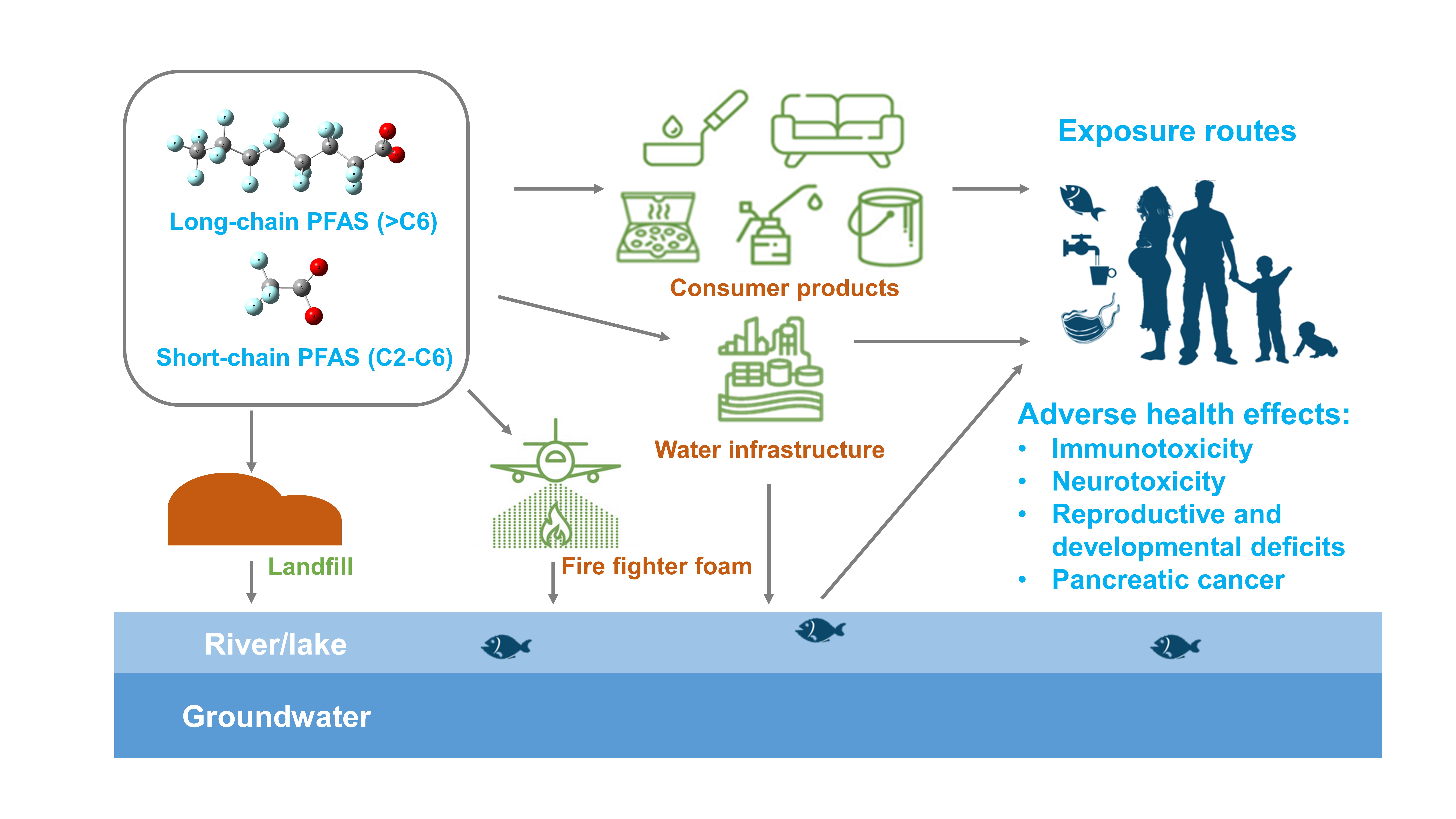Research project to eliminate ‘forever chemicals’
The Novo Nordisk Foundation has granted funding to a project to develop a multi-step system to treat water for per- and polyfluoroalkyl substances. The method is based on nature's own enzymes and a completely new nanomaterial being developed by researchers at Aarhus University.

Since the 1940s, per- and polyfluoroalkyl substances (PFAS) have been used in a myriad of products, ranging from raincoats and building materials to furniture, fire extinguishers, solar panels, saucepans, packaging and paints.
However, PFAS have proven to have a number of harmful effects on humans and the environment. And unfortunately, they are very difficult to break down in nature, hence their nickname ‘forever chemicals’. As a result, the substances continuously accumulate in humans, animals, and elsewhere in nature.
A new research project at Aarhus University will combat this, and under the name AquaCleaner, the project has received DKK 3 million from the Novo Nordisk Foundation.
"PFAS are some of the worst environmental pollutants, and unfortunately we don’t yet have green methods that can completely break the very strong carbon-fluorine bonds that make the substances extremely resistant to natural decay. In this project, we propose using a synergy of enzymes which, together with a new carbon-nano material in a multi-step system, can completely break down PFAS into non-harmful components," says Assistant Professor Zongsu Wei, an expert in water treatment at the Department of Biological and Chemical Engineering at Aarhus University.
Today, a number of different techniques are used to remedy the problem with PFAS. However, the methods either require a lot of energy or other types of chemicals, or they don’t remove PFAS completely, but transfer them to another phase (e.g. water to solid).
None of the existing methods can break down the perpetual chemicals in a green, sustainable way, and that is exactly what Assistant Professor Zongsu Wei is proposing with his project.
Based on the discovery of new metalloenzymes and dehalogenases, the researchers propose a cascade treatment strategy that can break down PFAS. In the final step of the system, the researchers will develop a nano-photo catalyst based on a new material: titanate nanotube-activated carbon.
"This technology uses significantly less energy than modern treatment techniques, and we can use it to realise our goal to completely degrade PFAS. Enzymatic defluorination is still in its early years, but we’re hoping for a breakthrough in the area. The process is scalable and therefore has huge perspectives," says Associate Professor, Zheng Guo, who is the Co-PI for this project.
Contact
Associate Professor Zheng Guo
Department of Biological and Chemical Engineering
Mail: guo@bce.au.dk
Tel.: +4587155528
Assistant Professor Zongsu Wei
Department of Biological and Chemical Engineering
Mail: zwei@bce.au.dk
Tel.: +4593522047
